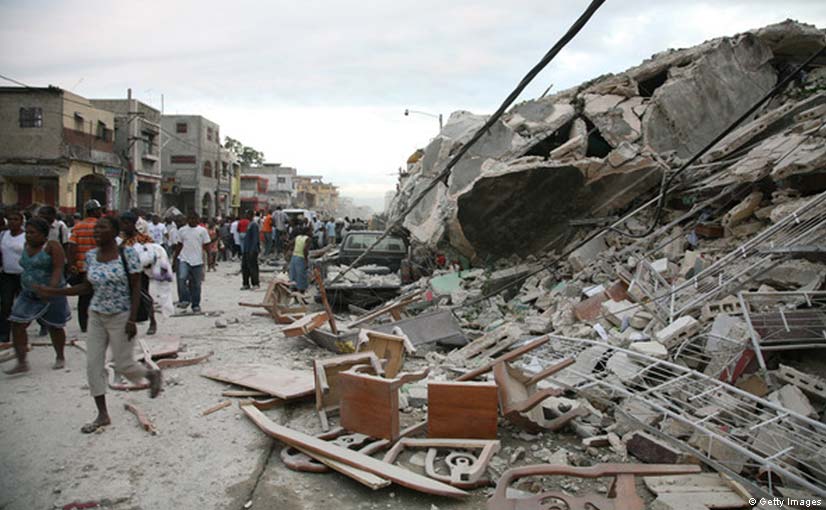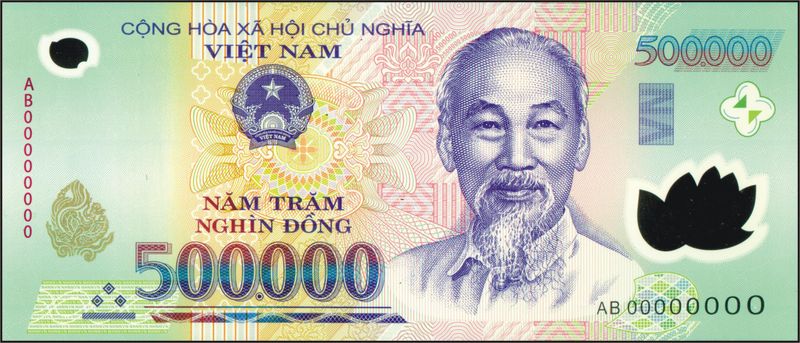Even a catastrophe can demonstrate how important it is to think as someone who Controls His or Her Cash. If doing so can dispel some class warfare misconceptions too, then all the better.
Unfortunately, for some the Haiti earthquake is more than just a colossal tragedy, since it’s possible to attach a moral component to some benign human behavior in the earthquake’s aftermath.
Haiti is the size of Massachusetts, with more people than Michigan. And since people started keeping records, Haiti has been the poorest country in the Western Hemisphere. The citizenry has endured uninterrupted horrible government since independence two centuries ago, unless you count bloody coups as “interruptions”. As you’ve probably heard, shortly after Haiti fell to rubble Royal Caribbean cruises’ Independence of the Seas made a scheduled stop 2 miles from the major northern city of Cap-Haitien. Never an industry to look beyond the surface, the media helped matters by using loaded terms like “frolic” and “frivolity” to describe the pampered passengers on board, who allegedly sipped mai tais and played shuffleboard while thousands of people died relatively close by. While you’re welcome to bash people who vacation on cruise ships as emblematic of indulgence and sloth, that isn’t the point.
If you glean one piece of knowledge from Control Your Cash, let it be this: alternatives must exist. Given that cruise ships exist, and that that existence is somewhat permanent, exactly what is supposed to happen if the Independence of the Seas cancels its visit to Cap-Haitien? The ship has to go somewhere. Were the Independence of the Seas to drop anchor a few miles off the coast of Hispaniola, or continue uninterrupted to San Juan, perhaps that would somehow mitigate the carnage around Port-a-Prince. Out of sight, out of mind, right?
Circumstances placed the passengers on board the Independence of the Seas in an awkward situation (yes, it’s all relative. “Awkward” compared to the passengers who took the same cruise the previous month, not compared to the Haitians waiting for the International Building Code inspectors to come by and slap a giant “Condemned” sign on the entire western half of the island.) If it’s distasteful to play on waterslides and sample the breakfast buffet while docked in Haiti, would it be any less so to do the exact same thing a few dozen miles offshore, where the locals couldn’t see the ship? Do you really believe the poor dark-skinned unfortunates can be that easily fooled?
Refusing to dock by Cap-Haitien won’t alleviate anyone’s suffering, unless you count assuaging the partially developed consciences of a few uptight and unthinking people. Furthermore, Cap-Haitien was 50 miles from the epicenter of the quake and is relatively unscathed. So naturally, the logical thing to do would be to bypass the port and keep tourist dollars from entering the country when they’re needed most.
Haitians, by virtue of being poor and rendered poorer by tectonics, don’t have the luxury of concerning themselves with such secondary cares as etiquette and propriety. While the spectators can debate the merits of hybrid subcompacts vs. SUVs, or refuse to eat food grown 101 miles away from their homes, the Haitians themselves have more pressing problems. Such as getting fed and sheltered.
It shouldn’t take a natural disaster to illustrate this point: while ordinary modern humans don’t live at the beck and call of rich people, it sure is handy having them around. Because once someone elevates from mere comfort to affluence, the difference between the two is measured by money that needs to be spent or invested. That money will almost always be spent or invested with people poorer than that rich person.
Liquidity of money is everything. Liquidity means the speed at which funds get spent in the economy as they move from lower-valued uses (sitting in a tourist’s pocket) to higher-valued ones (being exchanged for food and shelter, by a Haitian selling whatever goods or services.)
The irony is that cruises, despite being synonymous with ostentation, are anything but ostentatious. 75 years ago, the average person had as much chance of going on a cruise as she did of traveling in space. Today, cruises have been democratized to the point where Royal Caribbean offers 4-day junkets from Miami to the Bahamas (and back, presumably) for $247. That’s not per night, either.
Perhaps the distaste and second-guessing stems from the level of pampering the passengers on board the Independence of the Seas enjoy. If she had only one whirlpool instead of two, or served off-brand ice cream in her coffee bar instead of Ben & Jerry’s, that might mitigate the protocol horror.
Kudos to Royal Caribbean CEO Adam Goldstein for putting practicality ahead of public relations. He unapologetically made the economic case for docking in Haiti, hoping to persuade the holdouts who think it’s bad to patronize the hundreds of local merchants who rely on moneyed Americans to indirectly feed their families.
Just ask the merchants along Front Street in Lahaina, Hawai’i, who salivate when a cruise ship docks at the nearby terminal and passengers disembark, ready to spend. The people running those shops are Americans. If it’s a slow day at the shop, the merchants and their employees still have warm beds inside structurally sound dwellings to sleep in that night.
But for a Haitian local, the $15 he can earn for a day’s worth of tour guiding can mean the difference between going home, and going home hungry. The alternative (there’s that word again) would be for the cruise ship passenger to keep that money to spend it at the next port of call, which is certain to enjoy a higher standard of living than anywhere in Haiti does.
If the passengers are “uncomfortable” with coming within 50 miles of a disaster zone, or if people with no vested interest in the situation are uncomfortable, suck it up. Or you could ask a Haitian who just lost his house, his income, and a family member or two if there’s anything he can do to salve your discomfort.
One way to solve the problem of naked income disparities would be to have Royal Caribbean only cruise to ports with substantial per capita incomes. Luxembourg, for instance. That way, neither the cruisers nor the locals will perceive any inequality. Alas, Luxembourg is landlocked.
As to the finger-pointers who decry the Independence of the Seas’ passengers as representing all that is unholy with the festering white underbelly of globalization? If those naysayers really gave a damn about Haitians, they’d buy a cabin, dock at Cap-Haitien, ask for the deluxe tour from whichever Jean-Michel or Rene greets them at the port, tip generously, then head into a local café and order as much tassot et banane pesé as their well-fed First World stomachs could hold.
“Rich”, “out-of-touch” and “pampered” are perfect descriptors for anyone who recommends essentially forbidding poor Haitians from earning a livelihood. Especially now. A physical distance from the problem doesn’t exonerate you, either. If you’re ready to chastise Royal Caribbean and its customers, while you’re spending even a nickel on non-necessities of your own, you’re far more loathsome than the cruise passengers you condemn.




